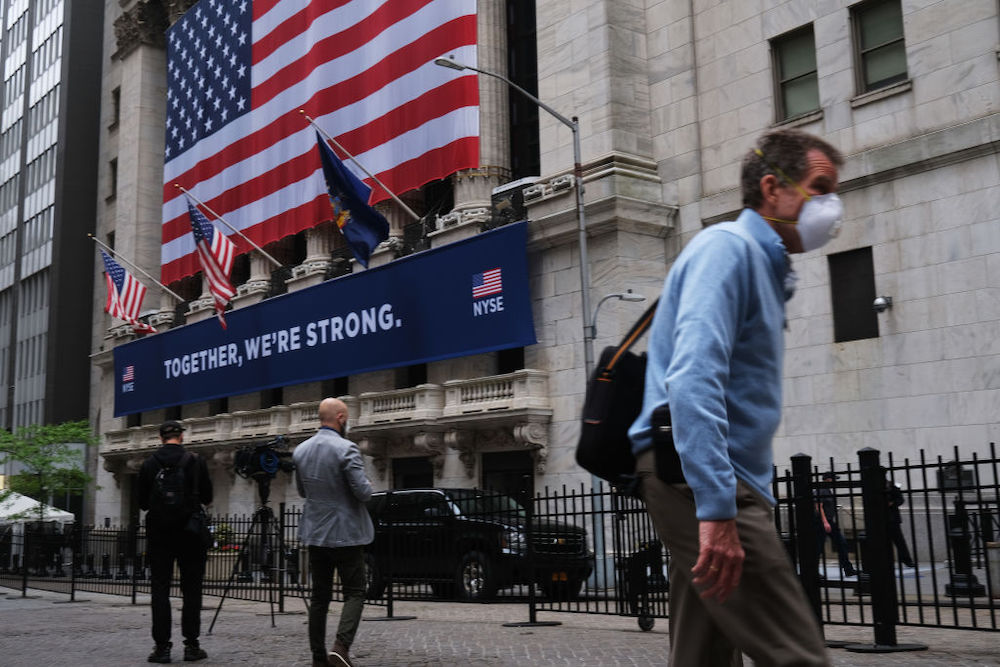- Change Finance, an exchange traded fund issuer, is calling on its portfolio companies to divulge pay-equity data following social justice protests in the U.S.
- The company is part of a trillion-dollar movement of financial stakeholders looking to promote environmental, social and governance matters with their money.
- Unequal pay is one of the factors that exacerbate inequality highlighted by the COVID-19 pandemic and other adverse outcomes faced by women and minorities.
Dorrit Lowsen said the images of George Floyd, the unarmed black man who died while in the custody of the Minneapolis police, spurred her to use her experience as a financial professional to press companies to take action on pay equity.
“Like everybody else in the country, we woke up horrified to see the video of police officers murdering yet another black man,” said Lowsen, president and chief operating officer of the Change Finance exchange traded fund. “As the country took to the streets, we thought, ‘What can we do?’ Our sphere of influence isn’t really the police, but the institutionalized racism that leads to that outcome is interconnected. So we do have a voice in another part of the system.”
Change Finance chose pay equity to battle because it is one of many underlying issues that exacerbate inequality, a problem highlighted by the COVID-19 pandemic and by other fatal outcomes minorities face in different settings, Lowsen told Karma.
Since its inception in 2017, Change Finance (CHGX) — with a fossil-fuel-free portfolio of U.S. companies with medium- and large-market capitalization, such as PayPal and Chipotle — has amassed about $19 million under management and trades on the New York Stock Exchange.
ESG investing to spur dialogue
The company is part of a wave of asset managers catering to investors who want to promote environmental, social and governance matters with their dollars.
Organizations such as Harvard University’s endowment fund and the Los Angeles City Employees’ Retirement System have agreed to the United Nations-backed Principles for Responsible Investment, promising to avoid companies that don’t align with their ESG goals. These investors collectively oversee about $80 trillion in assets.
ESG investors are concerned about diversity and pay equity matters because data shows companies with greater racial and gender diversity have better decision-making processes, more innovation and better financial performance.
Last week on Thursday, Lowsen and her management team of four people, evenly split between men and women, sent out letters to almost all the 100 companies in their fund portfolio urging them to take action on pay equity and annually publish their median pay gap data for minorities and women.
Change Finance’s goal is to engage in long-term dialogue with companies to address institutional discrimination highlighted by the death of George Floyd and the coronavirus outbreak, which has disproportionately affected people of color who often hold low-wage jobs, making them vulnerable to sickness.
Women of all races earned an average of 82 cents for every $1 earned by men of all races in 2018, according to an analysis of data from the Census Bureau. The pay gap is more pronounced for minorities. Asian women earned 90 cents, Black women earned 62 cents, while Hispanic or Latino women earned 54 cents compared to their caucasian male counterparts.
Tech brings quick action
Change Finance used technology to get their petition out fast. They sent their letters using data from the online platform Verity. They posted their call to action on YourStake, which allows investors to co-sign petitions and link their investment accounts to the action. The platform then assigns the value of their investments in support of the petition. As of June 11, investors with about $77.5 million in assets have co-signed their letter.
Six companies including Verizon have responded to the petition. The telecommunication giant pointed to its ESG report, saying, “across the globe and across all of Verizon, we have 100% pay equity in salary for women and men. In the U.S., we also have 100% pay equity in salary with respect to race/ethnicity.”
Verizon couldn’t be reached for comment.
But Lowsen says paying women and men with similar jobs or educational backgrounds an equal salary is only half the battle won.
She urges companies to disclose median pay data to reveal if women and minorities are equally represented in all jobs, especially high-wage leadership positions.
“The data across the nation is pretty clear that women and people of color disproportionately hold lower-paying jobs,” says Lowsen. “And as long as they hold lower-paying jobs, their median pay is going to be less.”
The end goal is for companies to disclose such information regularly which may enable investors to pressure firms that don’t comply or, as a last resort, divest from companies that are not taking action, she says.
Fighting for pay equity data
The impact and ESG investment shop Arjuna Capital has been urging companies to take action on pay equity since its inception in 2013, says Natasha Lamb, a co-founder and managing partner at the firm.
The investment boutique has $250 million of assets under management and has pushed 22 Fortune 500 companies to publish their gender pay gap data and, more recently, their median pay data through shareholder resolutions — most recently at Facebook.
Pay data broken down by gender is available in the U.K., which mandates companies disclose the information. The U.S. does not require companies to report on such matters.
Companies such as Citigroup, Starbucks and MasterCard have agreed to divulge median pay data, but many firms have fought the measure “because the numbers are unflattering,” Lamb told Karma.
She is pleased to see other organizations such as Change Finance that are taking action.
“We welcome peers that are joining the call to action and pressing companies to disclose on this matter,” Lamb told Karma. “Change does not happen in a vacuum. It takes a movement and many voices adding to the chorus.”
Photo by Spencer Platt/Getty Images






















